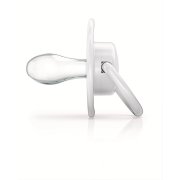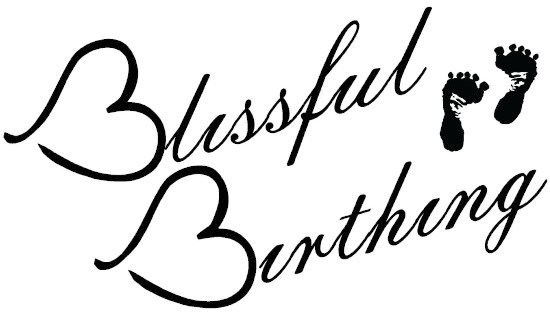Like most choices surrounding parenting, whether or not to use a pacifier (and which one to use) is something that everyone tends to have a strong opinion about. As a doula and lactation counselor, I’m often asked my opinion on pacifiers. I will start by saying this: there is no right choice when it comes to pacifiers, only what works for you and your baby. You do not (and should not) have to justify your decision to anyone, one way or the other.
Don’t give a pacifier to a breastfed baby!
Ummm. Excuse me? I hear this ALL THE TIME and it’s just not true. A breastfed baby can have a pacifier. However, there are some things you will want to take into consideration when choosing to use a pacifier with you breastfed baby.
- Pacifiers should not be used to stretch out feedings – The early days of breastfeeding can be exhausting! It may seem like your baby is always at your breast. This is because a baby’s stomach is very small at birth with a capacity of ~20mL (less than 1 ounce!). Baby needs to nurse frequently because their stomach cannot hold a large volume and breast milk is easily digested. Nursing on demand during the first month of life helps your mature milk to come in and to regulate your supply. If you give a baby a pacifier to prolong the time between feedings your milk supply may be impacted.
- Pacifiers can be used to soothe an upset baby – whether it is a diaper change, gas, or bath time that has your little one upset, it is ok to use a pacifier to soothe your baby. Sucking is very calming to babies as they associate it with being with their mother and nursing. I also recommend using a pacifier to calm a baby who is having trouble latching. Yes, you read that correctly. Breastfeeding is a learned skill (for mom and baby!). Let’s think about how we learn best: is it when we have failed a few times and are frustrated or when we take a moment to calm down and try again? For most adults (and babies) the latter is true. There is nothing wrong with using a pacifier to calm your baby when they are having trouble latching and it can help you calm down a bit, too (nobody likes to listen to their baby upset)
All pacifiers are the same

Orthodontic Pacifier
Babies know this better than anyone. There are SO many pacifier choices out there that it can be difficult to decide which is the “right” one. I asked Rachel Fenty, one of Blissful Birthing’s doulas and a dental assistant for 21 years about the difference between a “regular” pacifier and an “orthodontic” one. Orthodontic pacifiers distribute the force of baby’s sucking over the entire palate, which prevents the palate from being pushed up too high. A high palate can cause an obstructed airway, crowding of teeth, and speech issues.
Pacifiers can prevent SIDS
The American Academy of Pediatrics (AAP) is currently recommending the use of pacifiers to help decrease the incidence of Sudden Infant Death Syndrome (SIDS). Never use a pacifier attached to a tether or toy when baby is sleeping. Wubbanubs, though great for giving baby independence to put in and take out their own pacifier, are not safe for sleeping. The same holds true for tethers that prevent a pacifier from falling. Both of these items are fine to use with supervision, but should be avoided, per the AAP during sleep. If you would like to read more about pacifiers and SIDS, click here.
When should my baby stop using a pacifier?
Pediatric professionals recommend discontinuing pacifier use before adult begin to come in, but there is not hard and fast answer. For some families it is best to stop using the pacifier at 6 months. Baby still lacks object permanence which may make this transition easier. Other families will wait until their child is a bit older and can reason before taking the pacifier away. Speak with your child’s dentist for specific recommendations on when to stop using the pacifier, as they know your child and their oral history best.
My baby doesn’t like any pacifier
Some babies love pacifiers, others are indifferent, others don’t like them, and others still prefer their thumb. That is fine! You can think of it as one less transition your baby will have to go through.
There is nothing wrong with your baby if they won’t take a pacifier, prefer a non-orthodontic pacifier, or use their pacifier more or less than their peers! Our goal is to have happy babies!

